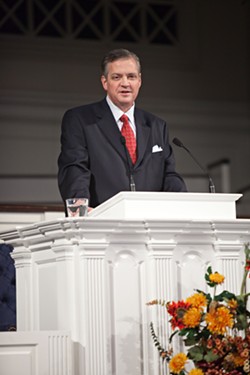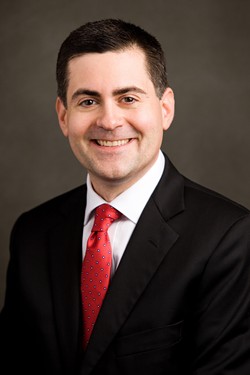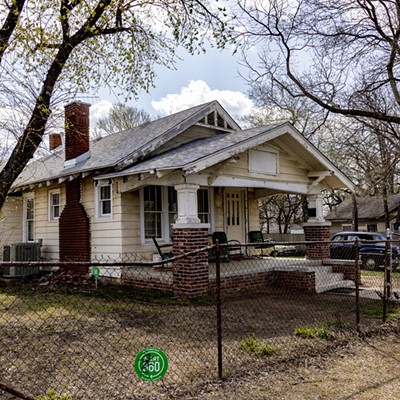Southern Baptists in Oklahoma will gather at Quail Springs Baptist Church this month to hear denominational leaders discuss how churches should respond to legalized same-sex marriage. The Baptist General Convention of Oklahoma (BGCO), the state organization of the Southern Baptist Convention (SBC), is sponsoring the two-day meeting called The Gospel, Sexuality & the Church.
As part of the event, keynote messages will be given by Al Mohler and Russell Moore. Mohler is the president of the Southern Baptist Theological Seminary in Louisville, Kentucky, and a frequent speaker and writer on cultural issues. Moore is the executive director of the Ethics & Religious Liberty Commission, a role that makes him the chief ethicist for the denomination.
Brian Hobbs, the director of communication for the BGCO, said the conference will be similar in some ways to a national event sponsored by the SBC in 2014.
“Our hope is to lead our churches and their members to embrace biblical standards of sexuality and respond to others, including those who may disagree with us, with kindness and conviction,” Hobbs said.
Kindness is a theme of the SBC’s approach to the issue of legal same-sex marriage. When federal judges started ruling state marriage bans unconstitutional, conservative Christian denominations were suddenly forced to deal with a new cultural reality in which their traditional message against same-sex marriage no longer has the force of law.
For several years, Moore has been saying that same-sex marriage is coming to the “red states,” a message he believes many Christians simply were not ready to believe.
Now that legal same-sex marriage has arrived, Moore is helping craft the Southern Baptist response. Moore said that he is encouraging Baptists to use “convictional kindness” in their dealings with others.
“The goal of convictional kindness is to respond with truth and grace,” Moore said.
Moore’s tone and approach was a welcome change to many Baptists who were concerned that the stridency sometimes associated with cultural disputes was effectively alienating the exact people Baptists were trying to reach.
“As Baptists, we believe the goal is not just to be heard but to call people to reconciliation,” Moore said. “The anger we have often seen in the cultural battle comes from a siege mentality, a fear of losing something, but Christians ought not be afraid.”
Mohler concurs with much of what Moore said, and the two have designed their keynote addresses specifically to help Baptist ministers — although Hobbs said anyone is welcome to register for the event, especially pastors from other denominations. Mohler, too, laments much of the tone the controversy has generated.
“The truth is that we have been guilty of speaking about this as if it is someone else’s struggle,” Mohler said. “We erred in speaking as if this affects people a long way from us, but the truth is that people in our churches are struggling. This is our struggle, too.”
Mohler helps train Baptist ministers at Southern Seminary, and he wants to help equip them to talk to people with whom they disagree in a loving manner.
“We make a grave error if we speak like we are speaking from a platform of moral superiority,” Mohler said.
Mohler said he is telling pastors and Christians who have engaged in the “culture war” with this sense of moral superiority or fear and anger to repent for having dealt with people wrongly. He, too, emphasizes the idea of care or kindness. He encourages pastors and seminary students to be comfortable speaking to people irrespective of their sexual orientation, and here Mohler lists an array of sins with which pastors should also be comfortable. The point is that the role of a minister is to treat all people as sinners and prefer no sins above others. Still, he is not naive about how the message of so-called biblical sexuality will be received by those who do not agree.
“No matter how kindly we say it, many will not accept it as compassionate or caring,” Mohler said.
The disconnect will occur for many people, Christians included, with the insistence that biblical marriage means one man and one woman or that the government should ban same-sex marriage. The nonpartisan Public Religion Research Institute released polling data that shows approximately a quarter of self-identified Evangelical Christians support same-sex marriage, and researchers at Baylor University (a Southern Baptist university) reported that another quarter do not support efforts to ban same-sex marriage. The numbers are deeply skewed when age is taken into account, as opposition to same-sex marriage increases with the age of those polled. Mohler and Moore are attempting to craft the SBC’s response and communicate it to an audience whose support for banning same-sex marriage decreases every decade.
Both Moore and Mohler insist that the role of the minister is not to back down from what they call a biblical position, even as they believe Christians must find better, gentler ways to communicate.
“This is not a new sexual revolution,” Mohler said. “We must not be afraid to be honest about what we believe the Bible says about these issues. The sexual revolution did not start with federal judges in 2014; it has been going on for decades, and no one on either side yet knows where it is heading.”
Print headline: Southern discomfort, Baptists will converge to discuss same-sex marriage and a new way to address it while still maintaining their belief that it is a sin.













